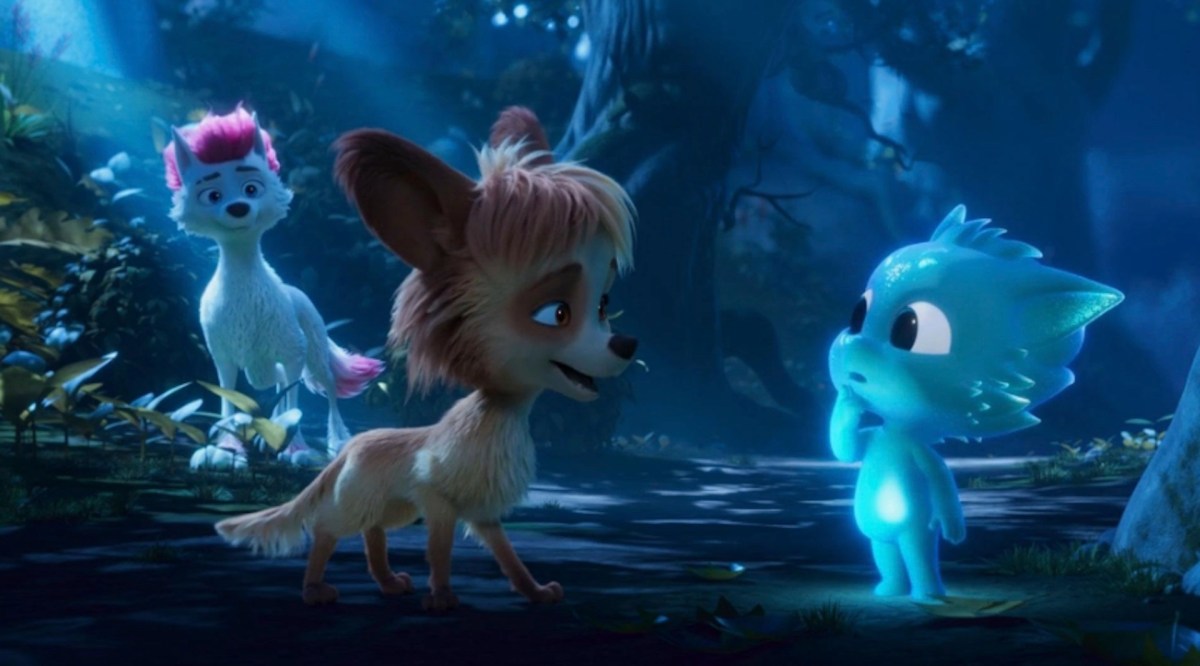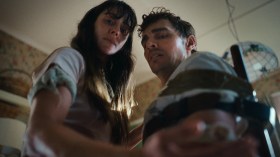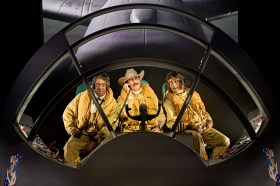Ari Chand, University of South Australia
In the past decade, Australia’s animation industry has matured well beyond its domestic context – to the point of competing on a global scale.
StudioCanal Australia’s latest release, 200% Wolf, is perhaps the perfect example of this. The film picks up where its predecessor, 100% Wolf (2020), left off – continuing the journey of poodle protagonist Freddy Lupin (voiced by Ilai Swindells).
While 200% Wolf inherits some of the narrative issues present in the original film, its overall higher level of production is a welcome improvement. It reminds us Australia really does have the ability to lead the world in animation.
Production at the highest level
The film excels in its use of animation techniques to convey emotion – with strong shot composition and scenes that are smooth, dynamic and well choreographed. The use of bold colours and lively backgrounds also creates a world that will draw young viewers in.
Animation production is a collaborative and difficult process, with many factors influencing the overall style and thematic focus of the final product. But when it’s done right, it has the unique ability to transport us into a different world.
Director Alex Stadermann and art director Shane Devries have curated a visual feast for young eyes with 200% Wolf. With complex action sequences, whizz-bang special effects and a beautiful sense of colour and light, the story features almost every good animation trick in the book.
The character animation, creature design and physical performance is also exceptional and outperforms 100% Wolf. The film’s illustrated title and credit sequence alone tastefully pay reverence to the artistry and people power required to make such a film.
In the age of AI, 200% Wolf is also the first animated film I’ve seen that explicitly states in its credits ‘this was made by real people’, while thanking the audience for supporting Australian industry and artists.
Considerations for co-viewing
Co-viewing is essentially when parents and their children consume media together.
Co-viewing is an important factor when creating animation for children. Adult viewers should be able to guide children’s interpretations of the content – reinforcing the positive messages while helping them find meaning in the story. At the same time, adults should also be able to enjoy and resonate with the story themselves.
The humour in 200% Wolf falls short. It often feels forced and caters strictly to a very young audience, with heavy use of slapstick and ‘potty’ jests. The deeper emotional moments also come across bluntly, lacking the level of subtlety adult viewers desire.
So while the film is visually stunning – and imbued with a unique sense of identity – it doesn’t break out of the ‘children’s’ category enough to be considered quality co-viewing.
A lacking storyline
Anthropomorphised animals have long been used to captivate young minds. They are also a great vessel through which to explore cognitive and emotional development within characters.
Animated dogs in particular became well established in the 20th century, during a period Animation Academy Professor Paul Wells describes as the Disney-fication of animation.
From comedic sidekicks such as Scooby-Doo to heroic protagonists like Bolt, animated dogs are embedded in the children’s content landscape.
In 2020, the film 100% Wolf – based on Jayne Lyon’s much-loved book – cut through the national and international market at a time when there was a global content drought due to the pandemic. Unfortunately, the film itself was riddled with overused tropes, and its formulaic narrative struggled to be compelling.
In the sequel, Freddy embarks on a new adventure to save his pack and prove his true nature once again. And while there is a deepening of the story and lore – especially with the introduction of the baby moon spirit MooPoo (Elizabeth Nabben) – the story once again ends up feeling slightly bland and generic.
The twists and turns promise to set up a narrative with humour and heart, but they often miss the mark.
The film’s erratic pacing means some scenes drag while others rush through crucial developments – failing to pique the audience’s interest. Nor does the audience get a chance to properly understand the characters’ motivations.
Freddy’s quest also feels repetitive of the first film; themes of identity and self-acceptance are rehashed without any new depth or insight.
Breaking barriers for animation
Historically, it has been incredibly difficult to raise capital for feature films in Australia. Animated films come with yet another layer of complexity, given the unique attention to detail they require.
Beyond having to navigate complex internal collaborations, animation creators and studios must also meet specific criteria and production demands set by external entities such as Screen Australia, the government’s key funding body for Australian productions.
With the many hurdles Australian animators have to jump, 200% Wolf is a nice reminder that world-class animation is indeed possible here.
Ari Chand, Lecturer in Illustration and Animation, University of South Australia
This article is republished from The Conversation under a Creative Commons license. Read the original article.





